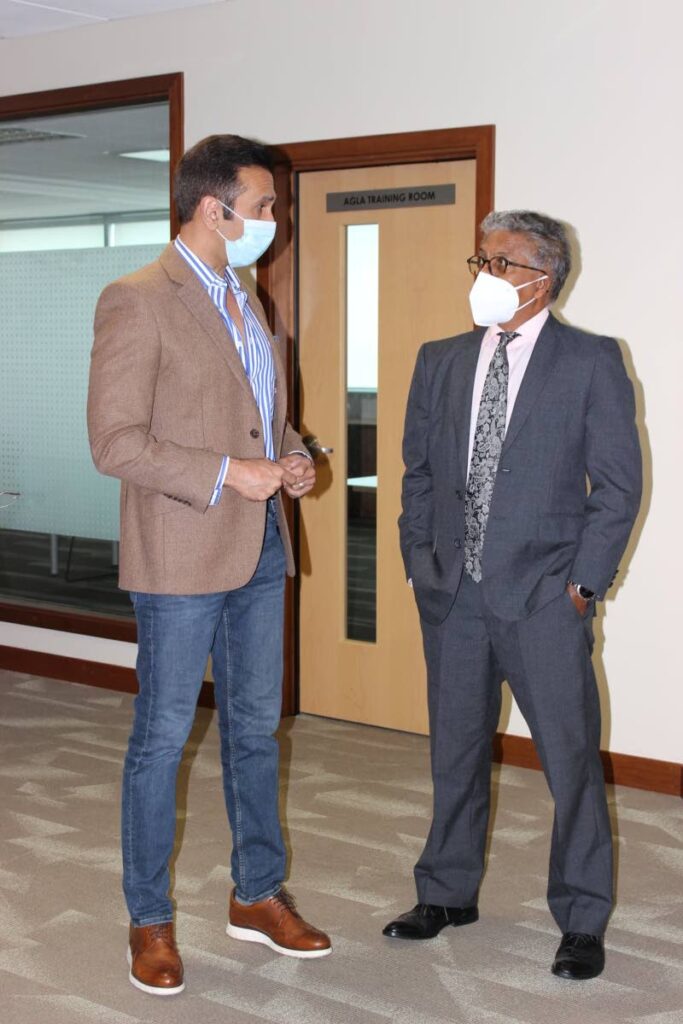Attorneys Nicholas, Mendes: Armour legit as AG

THE appointment of Attorney General Reginald Armour was legally valid said former attorney general Garvin Nicholas and former Law Association president Douglas Mendes SC, speaking to Newsday on Friday.
"There is absolutely no problem with his swearing-in," Nicholas said. Mendes said similar.
Critics online have been asking if Armour's appointment was invalidated by his admission of being a citizen of Dominica, where he was born, and Trinidad and Tobago.
Such critics cite the TT Constitution in section 42 (1) which says, "No person shall be qualified to be appointed as a senator who is a citizen of a country other than Trinidad and Tobago having become such a citizen voluntarily or is under a declaration of allegiance to such a country."
Nicholas explained why Armour's appointment was valid.
"He was born a Dominican. Therefore, he became a Dominican not voluntarily, but involuntarily.
"As far as I'm aware he has been using his TT passport and does not use his Dominican citizenship at all. So he's wholly Trinidadian essentially."
With Nicholas saying Armour's birth in Dominica did not invalidate him as AG of TT, Newsday asked if he was invalidated by the latter part of section 42(1) by being under any "declaration of allegiance to such a country (Dominica). Nicholas did not think Armour was under allegiance to Dominica.
He replied, "There was a Jamaican case that dealt with that. The test that they used was to see if he kept actively using the other citizenship, such as maintaining that other passport."
Otherwise, Nicholas opined that section 42(1) seemed somewhat outdated although still valid and on the legal books, because TT otherwise allows dual citizenship in general for the populace.
"As far as his (Armour's) ability to be sworn in, there is absolutely no legal impediment."
Mendez said similar. He said the first prohibition only applies if someone acquires a foreign citizenship voluntarily.
"It means obviously that if you were born in a country, and as a consequence of your birth you have citizenship of that country, then you would not have acquired it voluntarily. You obviously can't dictate where you are going to be born.
"Therefore you would not have acquired citizenship voluntarily and therefore that certainly doesn't apply (to Armour.)"
Mendes also did not think Armour's appointment was voided by the second provision in section 42(1), that is an invalidation if one is "under a declaration of allegiance" to another country.
"It would seem to me to follow as well that if you have citizenship of a country involuntarily (such as by birth) then the second part cannot apply either, because if the second part applies the first part would be redundant.
"There's no point in saying if you acquire the citizenship involuntarily you are disqualified but nevertheless you owe allegiance."
He said you do not swear allegiance if you were born in a country.
"This is an area that has been traversed. An identical situation arise in the Caymans, in which a senator if I recall, who had been born in the US and who had a passport and was travelling on it.
"The courts said you did not acquire it voluntarily because you were born there. It follows that if you have a passport of the country, whose citizenship you acquired involuntarily then the allegiance to the country would not matter either for the provision. It would make nonsense of allowing you to be qualified even though you are a citizen of another country involuntarily."
In contrast to Armour's case, Mendes gave examples of individuals who were under an oath of allegiance to a foreign state. Firstly he said St Kitts/Nevis (SKN) former prime minister Denzil Douglas had once found himself unable to stand as an MP because he had acquired a diplomatic passport from Dominica, implying a foreign allegiance.
"The country (Dominica) offers you protection and the corollary is your allegiance." Douglas had to surrender the diplomatic passport to regain his eligibility to be a SKN MP, Mendes related. Secondly, he said a person would be under an foreign allegiance (and so ineligible to be a TT senator) if he joined the US military and in doing so had sworn allegiance, even without having acquired US citizenship.

Comments
"Attorneys Nicholas, Mendes: Armour legit as AG"